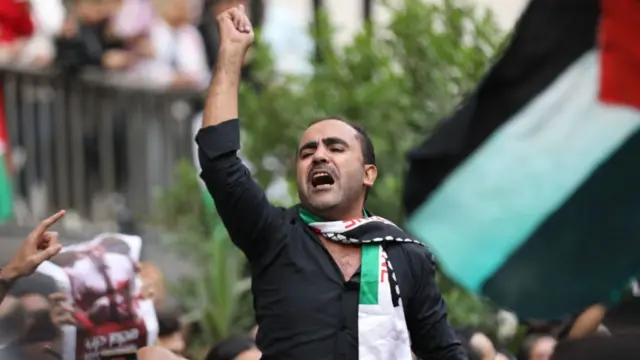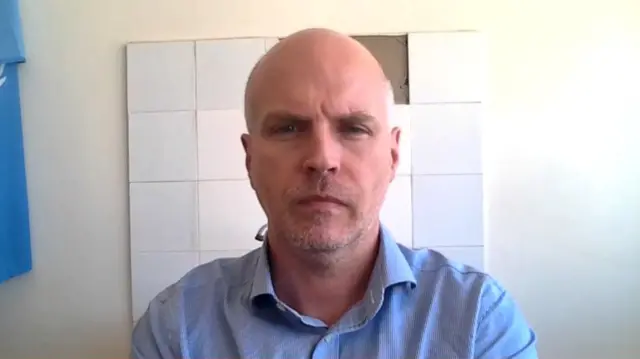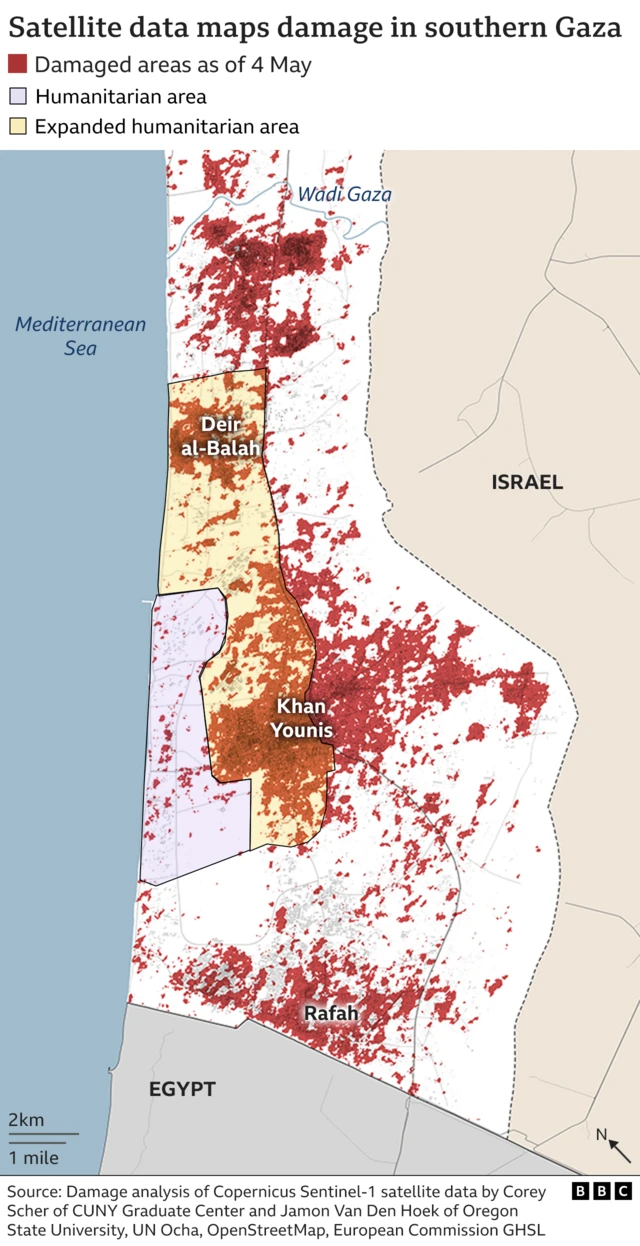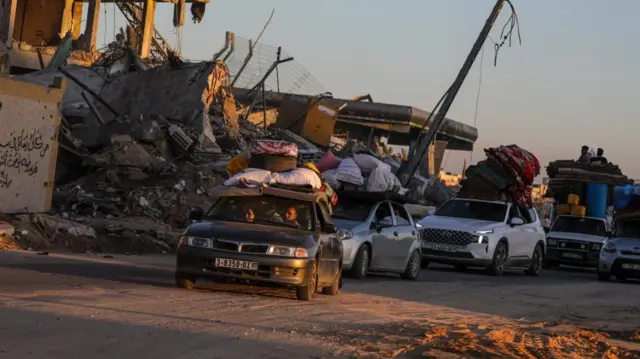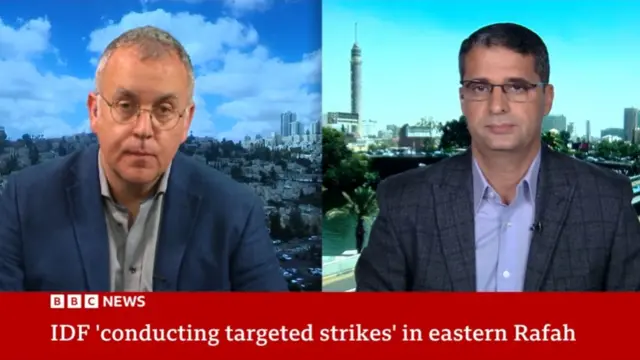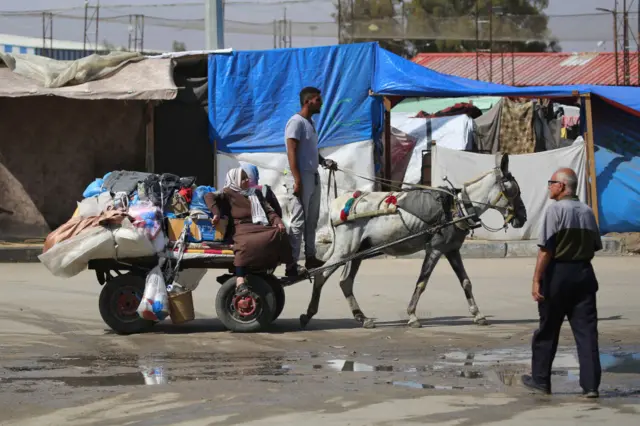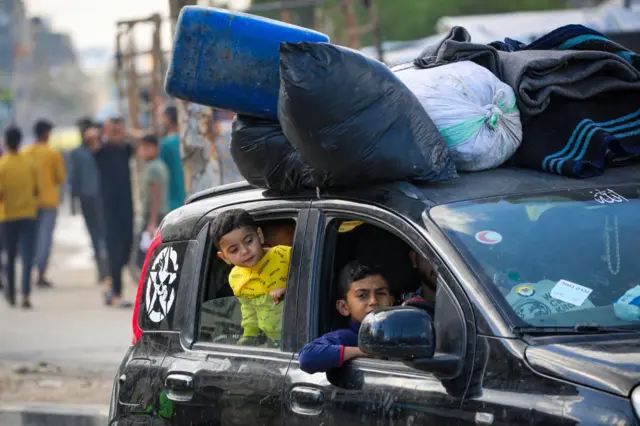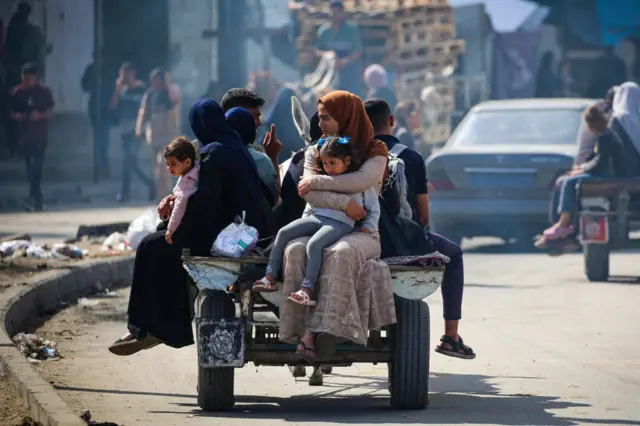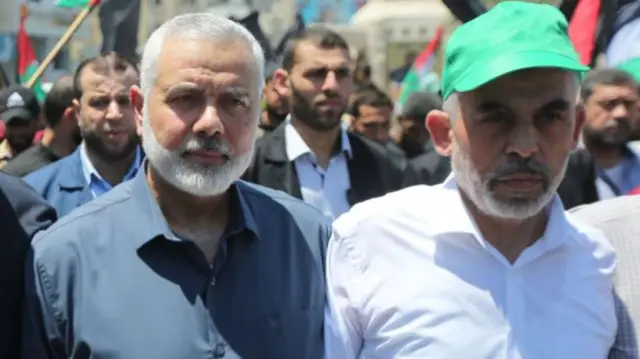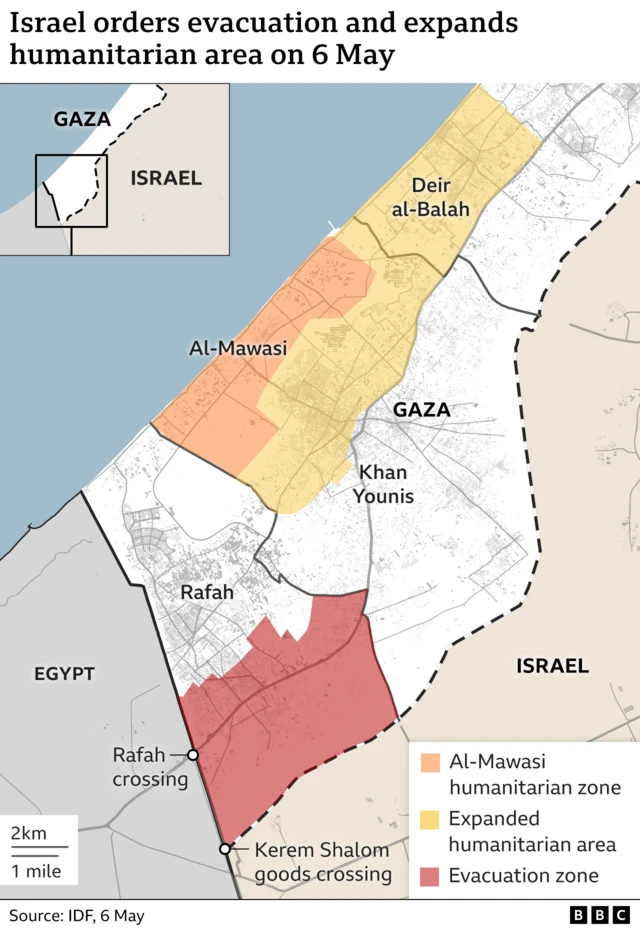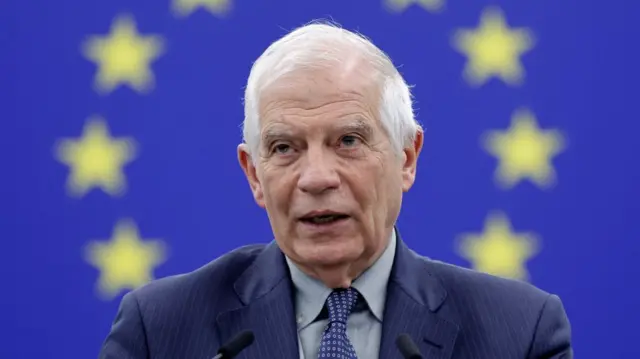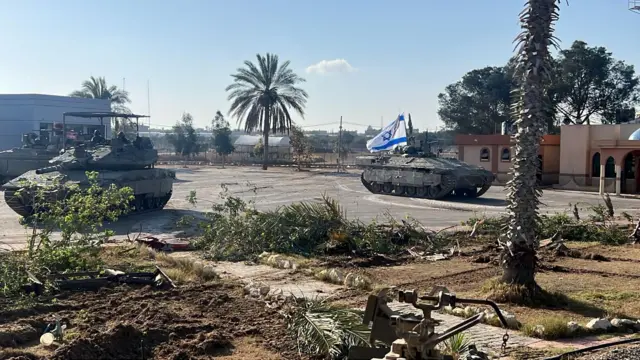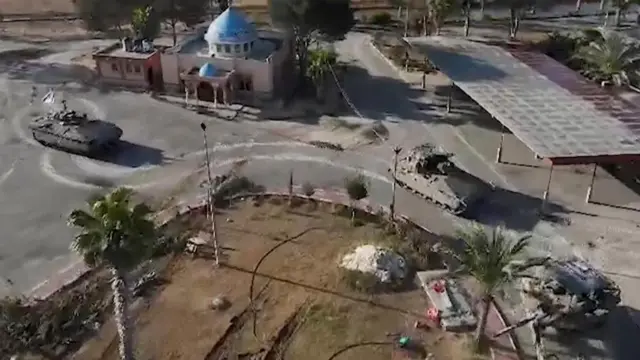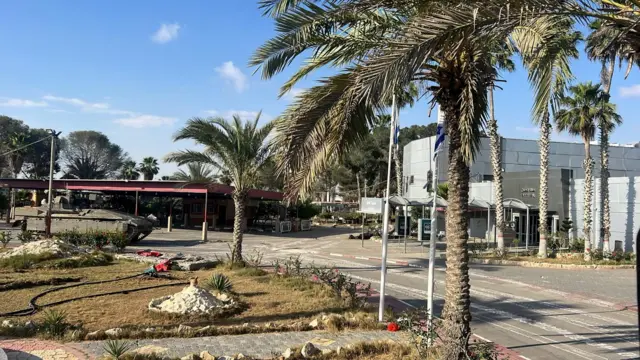Sunak: Parties need space to conclude ceasefire negotiationspublished at 14:38 BST 7 May 2024
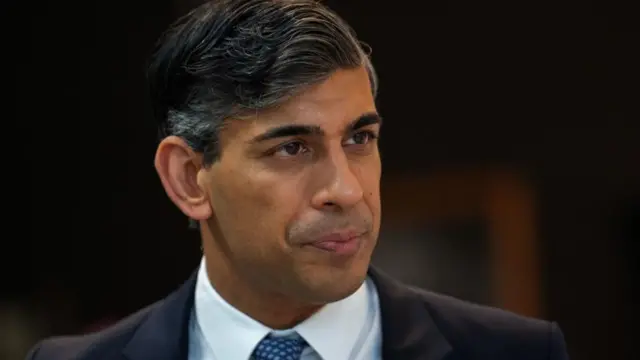 Image source, PA Media
Image source, PA MediaThe UK Prime Minister Rishi Sunak has urged parties involved in ceasefire negotiations to continue talking, and says, "we need to give them the space to conclude these negotiations".
He told broadcasters in south London: "We've been consistent in saying that we want to see an immediate humanitarian pause in this conflict so that we can crucially release the hostages, get them back to their families and get more aid into Gaza, people desperately need it, and then use that pause to build a more lasting and sustainable ceasefire."
Sunak says he has made these points to the Israeli PM previously and will continue doing so.
He adds he is "deeply concerned about the full military incursion of Rafah given the humanitarian consequences of that".


